Categoria: Sober living
Joe Jonas Gives Ex Demi Lovato a Shout-Out in Interview
“When I think of my future for the decade, I think at some point in this decade I want to start a family,” she admitted. “Demi Lovato and I went on a date. The woman is quite astounding and amazing,” Johnson told ET at the time. The “Anyone” singer, who is openly bisexual, also continued her support of the LGBTQ+ community, making an appearance virtually during the 31st Annual GLAAD Media Awards in July. In July, Lovato urged her fans to get out and vote this year by auctioning off items from her actual closet to those who pledged to vote and signed petitions to help what was eminem addicted to others vote amid the pandemic. “I’ve always considered myself someone that speaks honestly about issues that face my generation,” Lovato shared in a statement about the show. “We’re excited to bring those frank conversations to a public forum, where people can have the opportunity to relate to the topics and guests, while finding room for laughter and learning.”
- As concerned fans of Lovato attempted to piece together what happened to the pop star, blame was placed on those closest to her.
- Demi Lovato, the singer and former Disney Channel actor, has started to use “she” pronouns again.
- While far too nuanced to become a huge commercial hit, “Stone Cold” adds layers of rich emotional depth to a gorgeous melody that has become one of Lovato’s most streamed songs to date.
- Lovato has also spoken up for herself when she’s been publicly criticized for her weight.
Lifestyle Quizzes
The Australian singer-songwriter Sam Fischer remains poised for a wider international breakthrough after the success of his 2019 single “This City,” but Demi Lovato spotted his star potential and loved this composition. Their appetite for a full-blown collaboration led to Sam’s demo being reworked as a duet and the track was picked as the second single from 2020’s Dancing With The Devil… The Art Of Starting Over in February the following year. The pop star turns 28 on Thursday, and to celebrate, ET is looking back at the former child star’s impressive comeback following years of ups and downs. Growing up, Lovato won several talent contests and performed in famous venues, including the Eismann Center and the Dallas Cowboys’ Thanksgiving Day halftime show with LeAnn Rimes. They started their show business career in earnest at the age of 10 when they became a series regular on the children’s television show Barney & Friends. After a stint on Barney & Friends, Lovato guest-starred on the television dramas Just Jordan and Prison Break.
Biggest Performances, Best Acceptance Speech Moments & More At Women In Music 2024 Billboard News
Life & Style does not endorse the opinions and views shared by our readers in our comment sections. Our comments section is a place where readers can engage in healthy, productive, lively, and respectful discussions. Offensive language, hate speech, personal attacks, and/or defamatory statements are not permitted. Their breakup happened while they were touring together that year and the “Cool for the Summer” singer eventually left the tour to enter rehab.
When it came to doing it for this record, I wanted to have something different, and the idea of having a young girl’s voice telling the story of talking to her mom to find out about her infamous late father, just made sense to me. She’s got such a great, soulful voice, but it’s also got a certain kind of youth to it. Then I had the idea of getting Tash Neal involved, because this guy is just an amazing singer/guitar player that I had worked with in a blues thing a couple years prior to that. I was just listening to “Living For The City,” which is my favorite track on the album. Part of what has kept Slash’s career so intriguing is the diversity he embraces.
Blues Ball was really just for the fun of it, so it didn’t really take precedence. But all these years later, I was on tour with Guns N’ Roses, and we had a three-week break or whatever it was. I’d known Teddy Andreadis for a while and been jamming with him at The Baked Potato for years prior to this. So during this period, I got together with Ted and Johnny Griparic, and we started with this Blues Ball thing. We started touring around the country with it, and then even made it to Europe.
Famous Musicians
Following the release of her sixth studio album, Tell Me You Love Me, in late 2017, Lovato invited a camera crew to capture her on tour that following summer. Unfortunately, her descent back into drugs and alcohol that led to a near-fatal overdose that July was happening behind the scenes. Cameras captured a bit of her partying again and even writing her confessional ballad “Sober,” but the project was scrapped after she was hospitalized.
Lovato released the 2011 album Unbroken, which featured the platinum top 10 hit “Skyscraper.” They put out their next record, Demi, two years later, which had the best debut week of their music career. In 2015, Lovato unveiled a new single entitled “Cool for the Summer” from their album Confident. The single hit No. 11 on the Hot 100, while the album reached No. 2 on the Billboard 200. The artist enjoyed more success with their follow-up album, Tell Me You Love Me (2017), which spawned the hit single “Sorry Not Sorry.” On Friday, July 15, Lovato released the pop-punk-fueled HOLY FVCK single “Substance,” which features anti-drug sentiments (“Got high/It only left me lonely and loveless”) in the song’s lyrics and rowdy music video. Sealing Demi Lovato’s status as a consistent hitmaker, “Sorry Not Sorry” is one of those songs that has developed a life of its own.
Demi Lovato is a talented musician who plays multiple instruments, including the guitar and piano.
Strauss, 35, lauds Lovato not just for hiring an all-woman band for the job but also for advancing the cause of women and gender-nonconforming people in rock. From the time she was 18, the singer-actor has bounded in and out of treatment programs for drug addiction, bulimia, self-harm and trauma stemming from at least two instances of sexual assault. Lovato, whose every album has cracked the top five on the Billboard 200, is embracing her shadow side on her new LP, “Holy Fvck,” out Aug. 19. It’s a thundering, hard-rock horror maze through Lovato’s psyche as a superstar in recovery — not just from drugs and alcohol but also from the sexual and spiritual repression that had long eaten away at her sense of self. At her home studio in Los Angeles, Lovato posed for a photo with representatives from her record label and management team, led by Scooter Braun, who were all, incidentally, dressed in black. At the center of the picture sat Lovato, raising two middle fingers to the camera; “a funeral for my pop music,” she captioned the image on Instagram.
Find a Sober Living Network

While an individual can download the app directly at Google Play or the App Store, the best way to access SoberSystems® is through an invitation by a care manager. Normally this is a recognized professional such as a Therapist, Counselor, Recovery Coach or Case Manager. Often is may be the After Care/Continuing Coordinator from a treatment center. The Care Manager licenses the app for professional use and creates a group of clients which is secure, private and encrypted thereby protecting all data that is entered.
- Setting new goals is a crucial part of the recovery process, providing direction and motivation to continue progressing.
- Assertiveness is crucial for communicating needs and maintaining boundaries.
- Generally, counseling and medication are the most widely available evidence-based options for long-term treatment of substance use disorders.
- This practice supports their commitment to staying on track and maintaining a healthy lifestyle.
- It prevents feelings of isolation and provides a lifeline during difficult times.
Do You Lose Weight When You Quit Drinking?
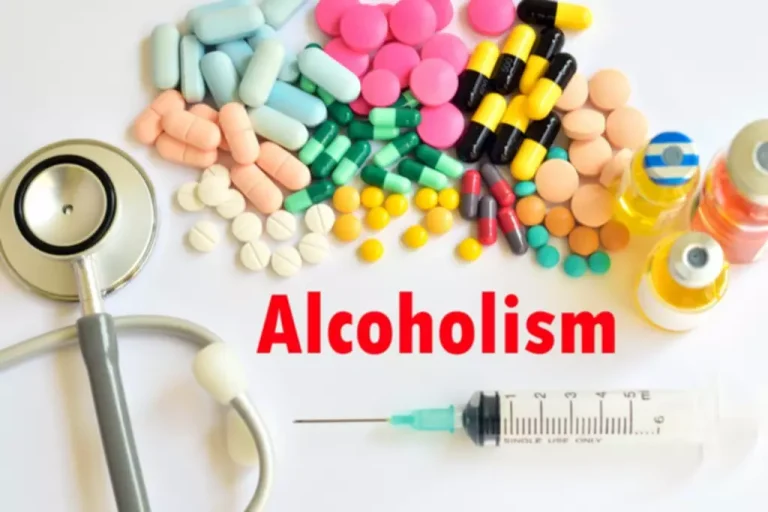
You can take all the time you need to build a support system that’s right for you. AA’s sister program Narcotics Anonymous (NA) follows the same framework, but is designed for those recovering from other substance use disorders. AA members typically attend face-to-face meetings where members share their experiences and discuss their progress through the steps. Founded in the 1930s, AA is a peer-to-peer fellowship that encourages recovery from alcohol use disorder via a structured, spiritually focused 12-step process. Some people might choose to only use recovery support systems on a short-term basis during their active recovery.
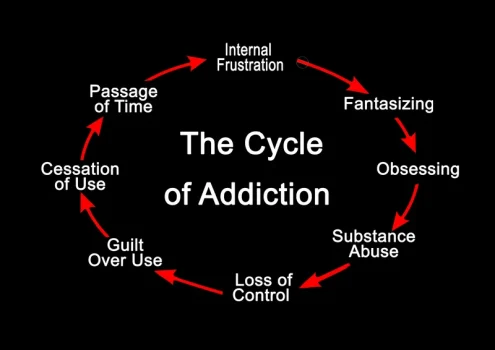
FAQs About Building a Sober Network
Commemorating milestones and progress is significant as it recognizes efforts, inspires individuals, and enhances self-esteem. A sobriety milestone or sobriety birthday is a celebration of significant days in your recovery from addiction, helping you look back on progress and stay motivated. Reflecting on progress through milestone celebrations provides motivation and a sense of accomplishment, essential for sustaining recovery. Engaging in social interactions can reduce feelings of isolation and boost mood, aiding in the recovery process. Throwing a sober party can be a great way to celebrate milestones, focusing on fun activities without alcohol or drugs. These activities support sobriety by providing enjoyable ways to connect and engage with others.
The Importance of a Sober Living Network in Recovery
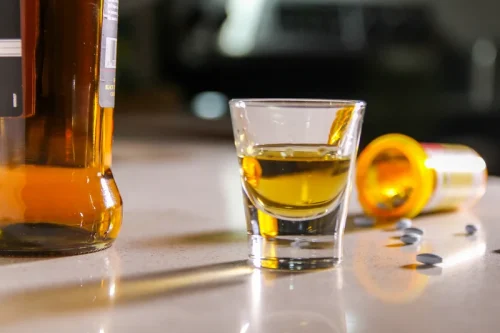
Attempting to struggle through recovery on your own can be extremely difficult. Not only make you become prone to loneliness, but you will have nobody to voice your struggle to. Having a chaotic or disorganized lifestyle can also hinder your recovery. It’s important to develop a structured sober network daily and weekly schedule and stick to it. For example, you may have developed a co-dependent relationship, or a family member, friend, or employer may have been enabling you without even knowing it. The symptoms involved in PAWS can be a barrier to recovery if you’re not careful.
- Aftercare programs make it easier to remain in recovery and avoid returning to substance use.
- It is also designed to assist clients identify and move “barriers” aside that prevent them from potentializing.
- Her fantastic work ethic and positive attitude have significantly impacted the Recovery Coach Program.
This will help you connect with like-minded individuals and create a strong support system to help you stay sober. A sober support network acts as an invisible scaffolding, aiding individuals in navigating the challenging landscape of https://ecosoberhouse.com/ recovery. It prevents feelings of isolation and provides a lifeline during difficult times. Imagine having a circle of supportive friends and family who understand your struggles and are there to cheer you on every step of the way.
- It can seem intimidating to look at the end goal and know the many steps it will take to get sober.
- Whether it’s for health, relationship, financial, or any number of reasons, consider creating a list on your phone of the reasons why you want to get and stay sober.
- Building a social support network – even if you must do so with other people – can help you regain the necessary skills to help rebuild these relationships.
- These are some tips that can help you ensure that the connections you forge during recovery will be long-lasting.
- Most people are unfamiliar with addiction and recovery, and as such don’t know what a recovering individual will need.
Recovery support systems

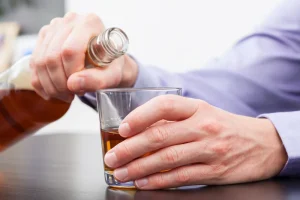
Drugs, Brains, and Behavior: The Science of Addiction: Preface
According to a 2021 review published in the journal Trends in Neurosciences, excessive drinking can disrupt gene expression in neurons, a process in which brain cells develop and connect with each other. These adaptations may be a key factor for developing alcohol use disorder, the researchers said. Meanwhile, Americans are drinking more heavily than they have in decades; the average adult now consumes over 500 drinks a year, and some 180,000 lives are lost annually to alcohol-related diseases and injuries. These trends were exacerbated by the stress of the Covid-19 pandemic, yet they began enabling behavior meaning before it, marking a major shift in America’s drinking habits. Drinking moderately if you’re otherwise healthy may be a risk you’re willing to take.
Alcohol use: Weighing risks and benefits
If you’re new to university-level study, read our guide on Where to take your learning next, or find out more about the types of qualifications we offer including entry level Access modules, Certificates, and Short Courses. Enrolling on the course will give you the opportunity to earn an Open University digital badge. Badges are not accredited by The Open University but they’re a great way to demonstrate your interest in the subject and commitment to your career, and to provide evidence of continuing professional development. Alcohol production is an excellent example of how modern-day science and engineering has met twenty-first-century commerce. This course investigates the basics of the chemistry and biology behind alcohol production. You will be introduced to the fermentation process, how the ingredients used lead to different flavours, and what chemicals cause these differences.
How does the brain recover?
By understanding the processes used in preparation you will explore the different types of beer. If you wish you can try your hand at brewing as you learn the science behind it all. Contributors to this article for the NIAAA Core Resource on Alcohol include the writers for the full article, content contributors to subsections, reviewers, and editorial staff.
Historically, public awareness of such risks, specifically the links to cancer, has been low. A review of 32 studies across 16 countries found that awareness of alcohol as a cancer risk factor was generally low, with some variation across regions. What sets Gen Z apart is that this change appears to be more than a passing trend.
- This was taken to provide support for a need to re-conceptualize addiction as a “disorder of choice”.
- Topiramate has complex molecular mechanisms of action, but because its efficacy appears to be moderated by a polymorphism at the locus encoding the kainate receptor subunit GRIK129, its actions are likely to be mediated through glutamatergic mechanisms.
- This treatment gap is in large part caused by a lack of effective treatments with good patient acceptance.
- Enrol and complete the course for a free statement of participation or digital badge if available.
- Examples of such features are high rates of spontaneous remission, preserved sensitivity to contingencies, and efficacy of treatments that strengthen cognitive control.
Deciding about drinking
Alcohol, any of a class of organic compounds characterized by one or more hydroxyl (―OH) groups attached to a carbon atom of an alkyl group (hydrocarbon chain). Alcohols may be considered as organic derivatives of water (H2O) in which one of the hydrogen atoms has been replaced by an alkyl group, typically represented by R in organic structures. For example, in ethanol (or ethyl alcohol) the alkyl group is the ethyl group, ―CH2CH3. OpenLearn works with other organisations by providing free courses and resources that support our mission of opening up educational opportunities to more people in more places. Enrol and complete the course for a free statement of participation or digital badge if available. Anyone wishing to provide evidence of their enrolment on this course is able to do so by sharing their Activity Record on their OpenLearn Profile, which is available before completion of the course and earning of the Statement of Participation.
Alcohol-related deaths are climbing in women, and lifetime risk of breast cancer rises as much as 9 percent with just one daily drink. Particular effects of alcohol on the body make drinking dangerous for drivers. Alcohol affects the brains ‘neurotransmitters’, the chemicals in the brain which carry messages to other parts of the body and tell it what to do.
The great Chinese Shang emperors of the late second millennium B.C.E. are said to have succumbed to too much drink, going crazy and committing suicide. This long and often polarizing history is described in this in-depth collection of articles from the Scientific American archives. Meta-analytic support for efficacy is also present for some medications that lack approval for the treatment of alcohol addiction, but are approved for other indications.
Efficacy of treatment approaches such as contingency management, which provides systematic incentives for abstinence73, certainly supports the notion that behavioral choices in patients with addictions including AUD74 remain sensitive to reward contingencies. It is unclear, however, to what extent this invalidates a “brain disease model of addiction”. The hopes that neuroscience would bring novel treatments to patients with addictive disorders is intimately related to the conceptualization of addiction as a chronic relapsing brain disease70. In recent years, this conceptualization has encountered increasing criticism45.
Finally, scientists explain the dreaded ‘red wine headache’
As a result of methodological advances, the concept of neuronal ensembles postulated by Hebb more than half a century ago99 has returned in full force59. It is rapidly becoming clear that this concept is critical for understanding valuation and decision-making processes that ultimately result in drug or alcohol use. Rather than reflecting activity of entire brain structures, such as the mPFC or the amygdala, these processes seem to reflect the activity of small neuronal populations that are sparsely distributed within the respective structure100,101,102. Functional ensembles are characterized by coordinated spatiotemporal activity and reliable re-activation during specific behavioral tasks. Neuronal ensembles are dynamic, meaning that they are formed and updated throughout the learning of a behavior103.
Sobriety Birthday: A Celebration You Shouldn’t Miss Here’s Why
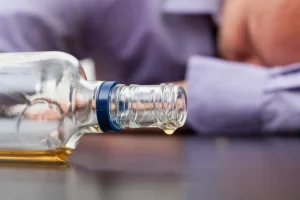
This is because experts say that it takes approximately one year for your brain and body to fully heal from the effects of alcohol and adjust to an alcohol-free lifestyle. This year of healing is usually both challenging and incredibly rewarding. While no two journey’s look the same, here are some common patterns that you might expect in your first year of sobriety. sober celebration ideas Keepsakes are a good way to remember any type of goal, especially sober living milestones.
Supporting Loved Ones in Addiction Recovery

Whether you’re recovering through Alcoholics Anonymous (AA), Narcotics Anonymous (NA), or another support group, reaching significant milestones in your sobriety deserves celebration. These milestones signify your progress, commitment, and determination to live a healthier, more fulfilling life. This article will explore why sober milestones should be celebrated and meaningful ways to celebrate while highlighting the importance of recovery in AA and NA. We’ll also discuss the role of AA anniversary coins, custom sobriety chips, and Alcoholics Anonymous medallions in commemorating these achievements. It provides an opportunity for reflection, helps build new traditions and habits, rewards hard work, and inspires others.
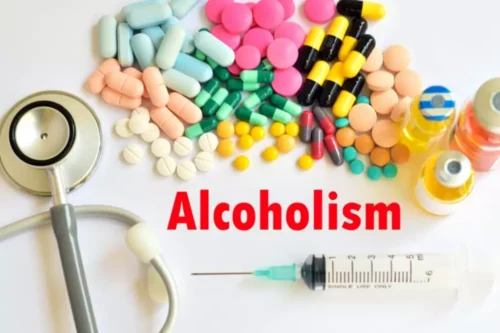
Bipolar Side Effects: The Hidden Symptoms No One Talks About
Social situations are made infinitely easier when you have someone at your side you know you can trust. They can help manage tricky conversations or divert attention if things get tense for you. I came across this service because it is more convenient to get virtual help. I had foot surgery and telemedicine is way better than finding a ride and not feel like an inconvenience to other people. People love having a tangible goal to work towards, especially if reaching that goal means there will be a celebration.

Ready to Celebrate Sobriety Milestones with Design for Recovery Sober Living Home?
When it comes to celebrating your sobriety milestones, it’s important to choose the right people to invite. You want to surround yourself with supportive, positive people who understand the challenges of recovery and will be there to cheer you on. Celebrating your milestones with others can also be a great way to build a sense of community and support.
Feel free to choose a message that resonates with you or personalize it to make it even more meaningful. Your encouragement and support will mean a lot to your loved one as they celebrate their sobriety anniversary. It marks the length of time an individual has remained sober and free from the influence of drugs or alcohol. Sobriety anniversaries celebrate sustained sobriety and symbolize the commitment to a healthier, substance-free life. When you have a loved one who’s been through recovery, their addiction likely impacted you as well. A lovely idea for a sentimental gift is to write a letter describing what their recovery means to you.
- I was sober, but instead of binge drinking on the weekends, I was binge-watching Netflix and eating pizza like a champ instead.
- Many organizations offer support to people struggling with addiction who can’t afford rehabilitation costs.
- By choosing sobriety, you may see an improvement in the strength of your relationships with your partner, child(ren), friends, and beyond.
- Celebrating sobriety milestones can be a great way to acknowledge progress and motivate continued success.
- Or practice simple party-going by attending larger parties where there is not alcohol, allowing you to readjust to the idea of what parties can mean and do for you.
- Note that you shouldn’t make this letter all about yourself but instead focus on the relationship.
- Some ideas include practicing meditation or yoga, relaxing beach vacations, getting a new haircut or trying a new style, or creating a vision board to focus on goals and aspirations.
- If you have a loved one with a sobriety anniversary coming up, you may not know what you should do.
Talking with a therapist can be especially helpful for processing these feelings. This is a common condition called post-acute withdrawal syndrome (PAWS), and symptoms will improve over time. For more information on PAWS, you can read more about the alcohol recovery timeline.

The 30+ Best Rap Songs About Drugs, Ranked By Fans

A study conducted by the University of Pittsburgh in 2008 analyzed Billboard magazine’s list of the 279 most popular songs of 2005. The results showed that substance use was referenced in 77 percent of rap songs, the highest percentage of drug mentions among all genres included in the study. Chris “Mac Daddy” Kelly (August 11, 1978 – May 1, 2013), was one of the founding members of the rap duo Kris Kross, whose 1992 chart-topping hit single “Jump” remains a cultural staple within the hip-hop and pop genres to this day.

How To Tell If You Need Medical Alcohol Detox
- Witnessing the consequences of substance abuse can potentially prompt other artists to reflect on their own behaviors and make positive changes.
- They are individuals facing complex challenges, and their experiences serve as a reminder of the need for compassion, understanding, and support within the music industry and beyond.
- “A year ago when overdose deaths continued to rise, I was really struggling with hope,” said Brad Finegood, who directs the overdose crisis response in Seattle.
- Statistics on the prevalence of drug addiction among rappers are limited, as many cases go unreported or undisclosed.
- Through the years, various high-profile rappers have entered rehab for substance abuse or mental health problems.
- Macklemore, whose birth name is Ben Haggerty, has recently been candid about his struggles with substance use and relapse.
DJ Screw passed away in 2000 and UGK’s Pimp C died from a codeine overdose in 2007, right around the time Lil Wayne was diving in head first. Spurred by the arrival of Cypress Hill’s self-titled debut album in 1991 and Dr. Dre’s The Chronic in 1992, marijuana’s popularity increased exponentially, peaking in 1993 as the most popular drug in hip-hop. By the mid-1990s, the percentage of rap songs with drug references increased from just four tracks in the early 1980s to 45 percent of all hip-hop tracks. Eminem has been sober for 13 years, and has been in the rap game for even longer.
- Gucci Mane is one of several rappers who didn’t quit their addiction because of their time in rehab.
- Meanwhile, JoJo’s father Joel — whom her mother met while attending AA meetings and divorced early in her childhood — came in and out of her life.
- This pressure can come from fans, record labels, and the industry as a whole.
Philly Mayor Supports 76ers’ $1.3 Billion Downtown Arena Plan
Another rapper who has dealt with drug dependency is Lil Wayne, whose real name is Dwayne Michael Carter Jr. Lil Wayne has been open about his use of lean, a concoction containing codeine. However, Lil Wayne has made efforts to prioritize his well-being and has spoken about his journey to recovery. Some artists may have grown up in rappers with drug addictions environments where drug use was prevalent, making it more likely for them to develop addictive behaviors. Others may have turned to drugs as a way to deal with the pressures of fame, the constant scrutiny, and the demands of their careers. However, following the death of a close friend of his, rapper Proof, Em relapsed in 2006.
The Unseen Victims of Drug Trafficking

Contemporary rap artist Future has bragged about his Xanax use in numerous songs. In his track “56 Nights,” the rap star claims to have taken 56 Xanax pills in a month. The song prompted fellow rapper OG Maco to accuse Future of encouraging people to use drugs.

- Some researchers believe the data will show an even larger decline in drug deaths when federal surveys are updated to reflect improvements being seen at the state level, especially in the eastern U.S.
- Rapper Snoop Dogg has been busted quite a few times for his marijuana possession and even just for reeking of it.
- He tells in the above video about how his children were his inspiration to finally get clean.
- By raising awareness and encouraging open conversations about drug addiction, we can work towards providing support and resources for those who are struggling.
- His struggle began at a young age, when he was tricked into smoking a crack-laced blunt at just 14 years old, which marked the start of his lifelong addiction.
His struggle began at a young age, when he was tricked into smoking a crack-laced blunt at just 14 years old, which marked the start of his lifelong addiction. Flav’s addiction was so severe that his family had to stage an intervention, which eventually led him to check himself into the Betty Ford Center to treat his crack-cocaine addiction. The legendary Ray Charles was arrested multiple times for heroin possession but managed to avoid jail. Singer Whitney Houston, cited by the Guinness World Records as the most awarded female act of all time, was repeatedly in and out of rehab. Alcohol detox medications, including benzodiazepines, disulfiram, naltrexone, and acamprosate, play a crucial role in managing withdrawal symptoms, supporting sobriety, and ensuring a safe detox process under medical supervision. It takes place at a house party and contains a back and forth conversation between Kendrick’s conscious and himself.
Case Study 1: Eminem
- Macklemore, also known as Ben Haggerty, struggled with substance abuse, particularly addiction to prescription drugs.
- In the highly competitive world of rap, artists often face immense pressure to maintain a certain image.
- Chris “Mac Daddy” Kelly (August 11, 1978 – May 1, 2013), was one of the founding members of the rap duo Kris Kross, whose 1992 chart-topping hit single “Jump” remains a cultural staple within the hip-hop and pop genres to this day.
- Along with his friend Chris Smith, the two were discovered in an Atlanta mall by producer Jermaine Dupri in 1990.
- In addition tovocalizing his affinity for recreational drugs, he also shared with fans thathe suffered from depression and bipolar disorder.
- Ventura, an R&B singer known as Cassie, accused him of years of physical and sexual abuse.
All of this, prosecutors say, was happening behind the facade of Combs’ global music, lifestyle and clothing business. Give directly to The Spokesman-Review’s Northwest Passages community forums series — which helps to offset the costs of several reporter and editor positions at the newspaper — by using the easy options below. Gifts processed in this system are not tax deductible, but are predominately https://ecosoberhouse.com/ used to help meet the local financial requirements needed to receive national matching-grant funds. Born in New York City in 1969, Combs started his career as an intern at Andre Harrell’s Uptown Records, which signed future hip-hop and R&B stars such as Heavy D, Mary J. Blige and Jodeci. He had a knack for the work and dropped out of Howard University to accept a promotion to talent manager.

Macklemore Opens Up About Drug And Alcohol Use
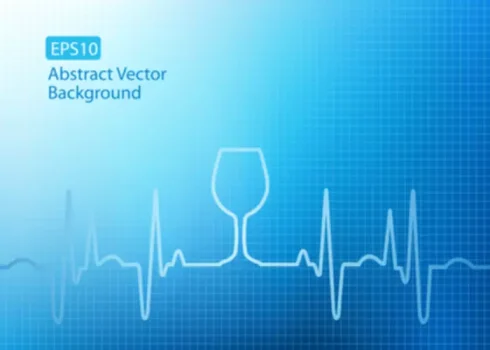
14 Best Nonalcoholic Drinks of 2024 Reviews by Wirecutter
But here are some things to consider as you navigate the https://www.gew3.org/Recovery/qumo-restoration-of-memory-map options of nonalcoholic drinks. This shift comes at the same time as a 2023 World Health Organization (WHO) report noting that even the smallest amount of alcohol is still not safe for your health. So, the rise of mocktails and nonalcoholic drink alternatives is good timing. Luckily, as more people are drinking less, there’s been an uptick in more drink companies creating nonalcoholic options. But it can still be tough to figure out which of these options are healthy.
Healthiest alcoholic drinks
Pentire use plants found along the Cornwall coastline for this product, including rock samphire, sage and Cornish sea salt – plus a few ‘secret ingredients’. This one is a great shout for anybody who isn’t a big fan of the taste of wine (shocking I know, but I actually do have a few non-sober friends who’ve just never vibed with a “large house white” – my go-to of yesteryear). Whilst it looks the part, this Opia option from Vintage Roots is more like drinking a really fresh and tangy peach juice. After putting various alcohol-free drinks to the test, I came to realise that sometimes I missed the energising effect of booze (although not enough to risk major hangxiety, poor decisions and messing up my sleep cycle). When I first stopped drinking, the thing I missed the most was craft beer.

Sparkling Water with a Slice of Fruit
- Founded by a former hydroponic farmer, Little Saints has an approach that combines food science and sacred plant medicines.
- Some alcohol alternatives can have side effects or interactions with certain conditions or medications.
- Offering a thoughtful, handmade alternative shows your guests that you value their preferences, making social gatherings more enjoyable for everyone.
For some, it can also be an indicator of alcohol use disorder, a medical condition characterized by drinking more than you want despite walking to cut down. Celebrations often call for food and drink to achieve a festive feeling. Whether it’s acknowledging another trip around the sun, a long-deserved promotion, or simply getting to the end of another jam-packed work week, raising a glass to mark the occasion can seem like the http://awetyl.ru/smotrik682.htm natural thing to do. There’s a reason why this offering won a Great Taste Award – it truly does have a sublime flavour, as well as sleek packaging. Reminiscent of a gin, this fragrant spirit has notes of Mediterranean herbs (to me it smells of freshly picked rosemary) and berries.
- We’d play on that by serving this tepache-like drink in a salt-rimmed glass to further tease out the margarita comparison.
- Attend Monument’s online alcohol support groups to hear what’s worked for others as they navigate the alcohol recovery timeline.
- I love how this one didn’t try to imitate booze, but rather became its own thing.
- The key with alcohol is drinking in moderation, and weighing any health benefits against the negative impacts of drinking.
Best kombucha

We think Curious Elixir No. 2 is the winner, with its approachable but complex, unique but familiar blend of pineapple, jalapeño, and lime. Curious likens the drink to a cross between a dark and stormy and a spicy pineapple margarita, and the beverage’s salt content provides a savory edge that we found delectable. We’d play on that by serving this tepache-like drink in a salt-rimmed glass to further tease out the margarita comparison. The deep red color peeking through the chic, minimal glass bottle of Figlia Fiore compels you to pour a glass, and the ruby drink doesn’t disappoint. A sip leads with notes of cherry, citrus, currant, plum, and an almost sangria-like fruit funk; hints of rose, layers of warming spices (especially clove), and a slight ginger burn then round out each sip. Nonalcoholic drinks are not for everyone, and it can take a lot of tasting to find the right one for you.
Create Your Own Zero-Proof Spirits and DIY Alcohol Substitutes

By blending complementary elements, you can replicate the complexity of traditional spirits while keeping your drinks entirely alcohol-free. These spirits often utilize a blend of botanicals, herbs, and spices to create a rich and layered taste experience. For instance, you might find options that offer the warm, aromatic notes of gin or the bold character of whiskey, all while being free of alcohol. However, while they can mimic some aspects of the flavor, the absence of alcohol can slightly alter the overall experience. When it comes to non-alcoholic beers, https://arcohunter.ru/node/8334 it’s critical to understand what “non-alcoholic” really means. While these beverages are designed to mimic the taste and experience of traditional beers without the intoxicating effects, they often contain small amounts of alcohol.
- Our journalists combine independent research with (occasionally) over-the-top testing so you can make quick and confident buying decisions.
- Other products like New Brew, TRU KAVA, Kin Eurphorics, Sun Chaser, and Zenify are good but feel different.
- Instead, white tea, white cranberry, and elderberry, ginger, and citrus extracts work together to create a soft yet crisp flavor that had us craving a second glass.
- When you want all the smells and tastes of the traditional cocktail minus the alcohol, Ritual’s got you covered — this one really tasted like booze!
- The brand’s original blend has a similarly mild flavor, making it great for winding down in the evening sans alcohol, with adaptogens like rhodiola and schisandra berry.
The moderation movement is still evolving, as the “low” half of the “no and low” category continues to grow. It seems more and more of us are giving the “less but better” thing a go, and while that may mean forgoing lunchtime pints in favour of an evening Negroni for some, for others it’s about entirely new alternatives. Because it’s concentrated and very sweet, we think it needs to be diluted. Cut it with tonic and garnish with lemon, as it benefits from acidity.

Powerful Booze Alternatives That Give You A Buzz (No Hangover)
Delta-9 THC is the primary (of multiple) natural active ingredient within cannabis responsible for the psychoactive high. I’ve spent hundreds of hours researching, studying, testing, and reviewing everything on this list. Certain products come up often enough to warrant me sharing my thoughts.

When it comes to non-alcoholic drinks, the question of whether they can lead to a hangover is an intriguing one. Since non-alcoholic beverages contain little to no alcohol—often defined as having 0.5% ABV or less—they generally won’t produce the same effects as traditional alcoholic drinks that can lead to hangovers. This means that while they are significantly lower in alcohol compared to regular beer, they are not completely alcohol-free. Gaba Black and Gaba Red promote focus and conviviality, and listed on the Black bottle are tasting notes of spiced pepper, an earthy body and a smoky, bitter finish. Bitter green leaves join equally bitter notes of bark, cloves, black pepper. I could get used to the taste if it delivered the booze-adjacent buzz it promises.
The Cycle of Alcohol Addiction National Institute on Alcohol Abuse and Alcoholism NIAAA
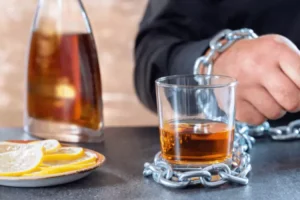
This disease is progressive, and your health will eventually bear the brunt. People with severe or moderate alcohol use disorder who suddenly stop drinking could https://ecosoberhouse.com/ develop delirium tremens (DT). It can be life-threatening, causing serious medical issues like seizures and hallucinations that require immediate medical care.
Addiction Questions?

Early withdrawal symptoms include headaches, anxiety, nausea, irritability and shaking. If you think a family member or loved one might be showing signs, signals or symptoms of alcoholism, know that it won’t “go away” on its own. Their brain is changing—and without help, there can be serious long-term consequences. These physiological changes contribute to the increasing tolerance seen in early-stage alcoholics. Despite heavy alcohol consumption, they may show few signs of intoxication or ill effects from drinking, such as a hangover. And as tolerance builds, they’ll begin to drink more and more to achieve the same buzz or high they’re used to.
- In this stage, a person may begin to experience cravings for alcohol.
- Over time, the liver of a person who drinks heavily can become damaged and cause alcoholic liver disease.
- Because he is a member of a support group that stresses the importance of anonymity at the public level, he does not use his photograph or his real name on this website.
Stage 2: Early Alcoholic
They are typically obvious to others, including coworkers, family members, and friends. In some people, the initial reaction may feel like an increase in energy. But as you continue to drink, you become drowsy and have less control over your actions. Recovery from AUD is marked by stages of abstinence, withdrawal, repair, and growth. While the process may take several years, the outcome is a happier, healthier life where you have the freedom to fulfill your full potential.
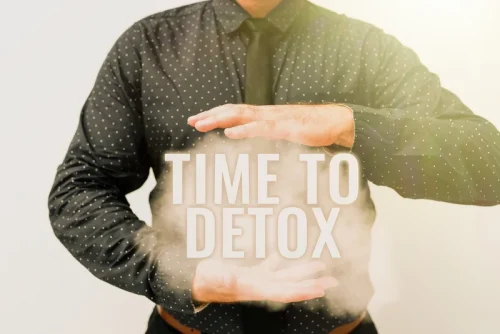
I’m In Recovery
Talk to your doctor if you think you might have a drinking problem. For those who need help right away, WebMD Connect to Care specialists are standing by to get you started on the road to recovery today. The DSM is the latest attempt by doctors to understand and diagnose this disorder. This stage can 5 stages of alcoholism be very dangerous and even fatal if a person chokes on their vomit or becomes critically injured. At this stage, a person no longer responds to the things happening around or to them. To be considered for a liver transplant, patients must remain abstinent from alcohol prior to transplantation surgery.
Stupor (0.25 – 0.49% BAC)
Seeking treatment during the pre-alcoholic stage is possible but is highly unlikely. The pre-alcoholic stage occurs before alcohol is ever a real problem. It’s difficult to identify because alcohol has yet to cause any problems and drinking has not become compulsive.
Alcohol Withdrawal Stages and Severity
- And the physical costs of excessive alcohol use become noticeable.
- If you think you may have alcohol use disorder, you’re not alone.
- If a person has consumed one or less drinks per hour, they’re considered to be sober, or low-level intoxicated.
- Since withdrawal symptoms tend to ebb and flow, you may be tempted to feel like you’re not making progress ― even though in reality, you’ve come a long way.
- Genetic, psychological, social and environmental factors can impact how drinking alcohol affects your body and behavior.
For these patients, a liver transplant is often the best option. The outlook for people with ALD depends on the severity of liver damage, the presence of risk factors and complications, and their ability to permanently stop drinking. In general, those with mild disease, who have no or few risk factors and complications, and who remain abstinent have better outcomes. For patients with severe alcohol-related hepatitis or severe alcohol-related cirrhosis who aren’t helped by other therapies, liver transplantation may be an option. During a liver transplantation, a surgeon replaces the patient’s damaged liver with all or part of a healthy liver from a deceased or a living donor. The single best treatment for alcohol-related liver disease is abstinence from alcohol.
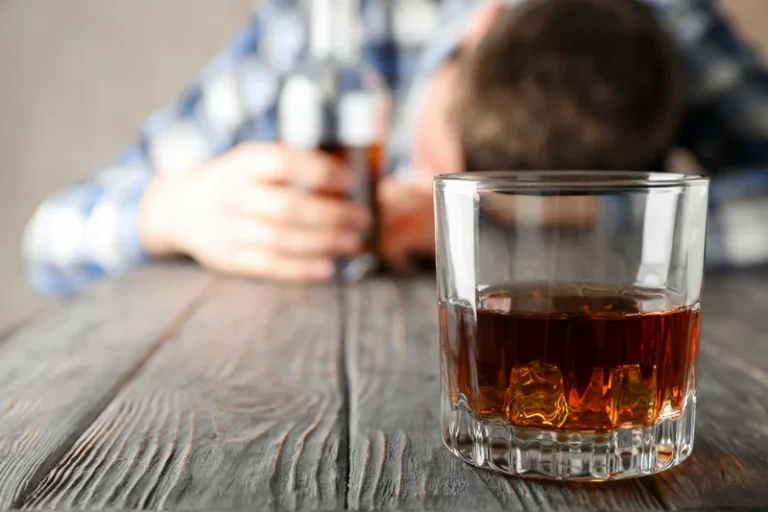
Physical Signs of Alcoholism
Early-Stage Alcoholism
- They are typically obvious to others, including coworkers, family members, and friends.
- Boca Recovery Center is here to provide the best quality care in the treatment of drug and alcohol addiction.
- Furthermore, you may become dependent on the feeling you get from drinking and find that these episodes increase in frequency.
What causes alcohol-related liver disease?
- The disease concept of alcoholism hadn’t yet been introduced.
- The primary symptom of stage one is the development of alcohol tolerance.
- Early-stage alcoholism is easier to notice than the pre-alcoholism stage.
- Thanks to generous benefactors, your gift today can have 5X the impact to advance AI innovation at Mayo Clinic.
- In this stage, people may be simply experimenting with alcohol consumption.
Alcoholic Eyes: The Impact Alcohol Has on Your Eyes
When this happens, you may have blurred vision or double vision due to weakened eye-muscle coordination. Take the time to let your body recover and get back into its normal rhythm. This can help improve overall eye health and reduce any vision disturbances.
It can cause blood vessels to dilate, which can alter blood flow to various organs, including the eyes. This disruption in blood flow can further contribute to blurry vision during a hangover. Blurry vision during a hangover is often a result of dehydration and changes in blood flow. Alcohol is a diuretic, meaning it increases urine production and leads to fluid loss. This dehydration can affect different parts of the body, including the eyes.
Alcohol consumption can weaken these muscles and impair their ability to move the eyes smoothly and accurately. This can cause the eyes to struggle to focus on objects, leading to blurred vision. But long-term alcoholism can cause nutritional deficiencies (such as B12 and folate deficiency) and gut absorption issues. Both of these can lead to the development of nutritional optic neuropathy over time.
Taking breaks from activities that strain the eyes, such as reading or using electronic devices, can also be beneficial. While alcohol alone can lead to blurry vision, the question is whether the use of alcohol or substances during a hangover can worsen this symptom. If you or a loved one need support to cut back or stop drinking alcohol, get in touch with your GP. Learn the eye-related side effects of antidepressants, such as dry eye, dilated pupils, blur, eye twitch, and, less commonly, acute angle-closure glaucoma. Drinking large amounts of alcohol may temporarily but significantly increase the size of your pupils, though effects can vary from person to person. While it may not be possible to completely eliminate the effects of alcohol on your vision, there are steps you can take to minimize its impact.
Double vision, blurry vision and drinking
The doctor can help diagnose an underlying condition and provide appropriate treatment. This article reviews how alcohol can affect vision, the possible short- and long-term effects, treatments, and more. Excessive alcohol consumption can negatively affect the eyes, leading to rapid eye movement, double vision, and potential blindness. Additionally, alcohol can also affect the muscles that control the movement of the eyes.
However, the damage enabling definition psychology is near permanent at this point, and symptoms will progress with continued alcohol consumption. Excessive alcohol consumption can speed up the onset of macular degeneration, which deteriorates the central part of the retina. This condition severely affects central vision, crucial for reading, driving, and facial recognition. It poses a significant risk, especially for older adults, impacting essential daily activities and overall quality of life. Those who drink alcohol regularly might find themselves reaching for eye drops more often.
- The best thing you can do to alleviate eye-related symptoms caused by alcohol consumption is to cut back on drinking or eliminate alcohol altogether.
- Low to moderate alcohol consumption may prevent some eye diseases such as central retinal vein occlusion (RVO), the blockage of eye veins.
- Researchers have noticed that heavy drinkers are likelier to have low levels of protective nutrients such as zinc and vitamins (B12 and folate).
- Individuals with pre-existing health issues, such as liver damage, kidney disease, migraines, diabetes, or poor vision, may experience more severe impacts from alcohol on their eyesight.
- Certain substances, such as caffeine, can have a temporary positive effect on blurry vision during a hangover.
- In the short-term, overconsumption of alcohol can result in blurry or double vision.
Is blurry vision a common symptom of a hangover?
Occasionally drinking moderate amounts of alcohol doesn’t usually cause any health problems. But if you are a heavy drinker—which means consuming alcohol more than a few times per week or binge drinking—you will likely experience health issues as a result. It is hard to predict whether you will develop effects that harm your liver, heart, nerves, or eyes, and you can experience a combination of these.
Risks of Long-Term Excessive Drinking
On the other hand, chronic alcohol consumption will negatively affect the entire body. For example, if you notice the whites of the eyes are turning yellow, this is actually not an eye condition. Rather, this is a liver issue called jaundice which may indicate alcoholic hepatitis or inflammation of the liver.
Heavy drinking can lead to long-term effects on the eyes that can range in severity from rapid eye movement to vision loss and blindness. In addition, it may have a toxic effect, which can lead to the development of conditions that impair vision. To relieve blurry vision caused by a hangover, it’s important to rehydrate your body. Drinking water or a rehydration solution can help alleviate the dryness in your eyes and improve vision. Applying lubricating eye drops can also provide temporary relief and make your vision less blurry.

